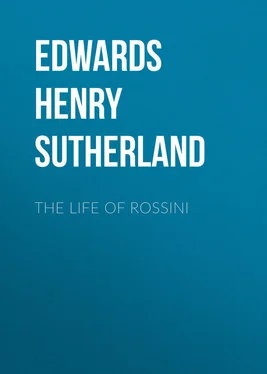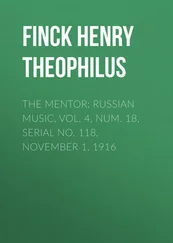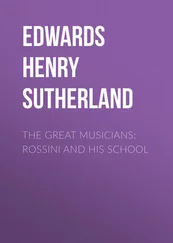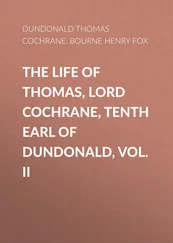Henry Edwards - The Life of Rossini
Здесь есть возможность читать онлайн «Henry Edwards - The Life of Rossini» — ознакомительный отрывок электронной книги совершенно бесплатно, а после прочтения отрывка купить полную версию. В некоторых случаях можно слушать аудио, скачать через торрент в формате fb2 и присутствует краткое содержание. Жанр: foreign_antique, foreign_prose, на английском языке. Описание произведения, (предисловие) а так же отзывы посетителей доступны на портале библиотеки ЛибКат.
- Название:The Life of Rossini
- Автор:
- Жанр:
- Год:неизвестен
- ISBN:нет данных
- Рейтинг книги:4 / 5. Голосов: 1
-
Избранное:Добавить в избранное
- Отзывы:
-
Ваша оценка:
- 80
- 1
- 2
- 3
- 4
- 5
The Life of Rossini: краткое содержание, описание и аннотация
Предлагаем к чтению аннотацию, описание, краткое содержание или предисловие (зависит от того, что написал сам автор книги «The Life of Rossini»). Если вы не нашли необходимую информацию о книге — напишите в комментариях, мы постараемся отыскать её.
The Life of Rossini — читать онлайн ознакомительный отрывок
Ниже представлен текст книги, разбитый по страницам. Система сохранения места последней прочитанной страницы, позволяет с удобством читать онлайн бесплатно книгу «The Life of Rossini», без необходимости каждый раз заново искать на чём Вы остановились. Поставьте закладку, и сможете в любой момент перейти на страницу, на которой закончили чтение.
Интервал:
Закладка:
H. Sutherland Edwards
The Life of Rossini
INTRODUCTION
ROSSINI was a very celebrated man fifty years ago. Forty-seven years ago he had already finished his Italian career. “Semiramide,” the last opera he composed for Italy, was produced in 1823; and that same year the Abbé Carpani wrote the letters on which Stendhal founded, if not the best, at least the best known life of Rossini that has appeared.
Stendhal’s Life of Rossini was given to the world, and found a ready acceptance, nearly half a century before Rossini’s death. But it so happened, what his biographer could not have known at the time, that, in the year 1823, the composer of “Semiramide” had really completed an important, probably the most important, period of his artistic life. He began to write in the year 1808; and it was between the years 1813 (“Tancredi”) and 1823 (“Semiramide”) that he made his immense reputation.
During the next six years, from his visit to London in 1823 until the production of “William Tell” in 1829, he made his fortune, while continually adding to his reputation.
Finally he passed the third and comparatively inactive period of his life, from the year of “William Tell” until his death, in the tranquil enjoyment of his fortune and reputation, reminding the world from time to time, by the “Stabat Mater,” by the three choruses, “Faith,” “Hope,” and “Charity,” and by some charming compositions for voice and piano, that he was still the Rossini of former days; and proving by his last production that, even in extreme old age, he retained his glorious powers in all their fulness.
He composed a cantata when he was sixteen, and a mass when he was seventy-two. He began to write ten years before Donizetti, and nearly twenty years before Bellini; and he continued to write when these, his immediate and most illustrious followers, were no more. It is clear, then, that in Rossini the Italian music of the nineteenth century is represented, and, as it were, comprised. Consider, in addition to this, the vast popularity of his best works, and the influence of his style on that of Herold, Auber, and Meyerbeer, and what can be more evident than that Rossini was the chief operatic composer of his time, not only as regards Italy but as regards all Europe?
The main incidents of Rossini’s life are all connected directly or indirectly with music. As a youth, when Prince Eugene was Viceroy of Italy, he would have fallen a victim to the conscription but for the proofs he had already given of rare musical genius. When, at the age of 30, he took a wife, he married a singer for whom he had written some of his greatest parts. As a young man he was constantly travelling from one Italian city to another to superintend the production of his works. For the same reason he went to Vienna, just as his Italian career was coming to an end, and there met Beethoven. He never crossed the sea but once, and then only the Straits of Dover, to pay an artistic visit to England; and he passed the latter portion of his life in the country to which he had given “William Tell,” and which he had almost adopted as his own.
Rossini had no ambition apart from music, and was quite satisfied with being the first operatic composer of his epoch. He was observant, well informed, talked well on a great variety of subjects, and possessed the sort of cultivation which might have been expected from his long habit of association with eminent persons in all branches of art and of the highest social distinction.
With regard to his temperament, everyone has heard that when, writing in bed, he let fall the piece he was just finishing, he did not rise to pick it up, as a man of sluggish imagination would have done, but at once, with true musical activity, wrote another. He did not like the half-material bother of setting to work; but he was full of ideas, and, when he did begin, melody flowed from him as from an eternal spring. Some of his most beautiful thoughts came to him suddenly as if by inspiration. He conceived the preghiera in “Mosè” on seeing the words, and wrote “Di tanti palpiti” while his dinner was being served. He was too delicately organised and had too much sense to love labour for the sake of labour; but he produced five operas in 1812 when he was preparing for “Tancredi;” he composed the “Barber of Seville” in thirteen days, and the “Barber of Seville,” “Otello,” “La Cenerentola,” and “La Gazza Ladra” (not to speak of some minor works) in little more than a year. He wrote nothing operatic after the age of 37, but how he worked for the theatre until he was 30!
As to money, he had a just regard for it. But he was neither extravagant nor penurious; and when by working a few years in France he had secured a fortune which he never could have gained in any other country by the mere pursuit of his art, he gratefully abandoned his “author’s rights” to the “Société des Compositeurs de Musique.”
There was nothing dramatic in Rossini’s life. From an obscure origin he rose in a very few years to be one of the most celebrated men in Europe; but this gave him no trouble. His success was immediate, like that of a beautiful woman, whose beauty every one can appreciate. He never met with an obstacle of any importance, and his brilliant genius was never seriously or persistently denied.
Nevertheless, he made no undue concessions to the public taste, and he was a great innovator. In the course of ten years’ very hard work he completely changed the system of Italian opera. Into opera seria he introduced the most valuable reforms; while for the farce of the old opera buffa he substituted the comedy style in which “Il Barbiere” and “La Cenerentola” are written.
It is a pity no musician has thought it worth while to write the artistic life of Rossini, showing fully and explicitly what modifications, developments, and new combinations in opera are due to him. Without venturing too far into technicalities, I have attempted something of the kind in this volume, which aims, however, at the character of a complete biography.
PART I
ROSSINI AND HIS EARLY WORKS
CHAPTER I
ROSSINI’S YOUTH
ALTHOUGH Rossini’s artistic life did not number precisely the “three score and ten years” allotted to man, we must go back a full seventy years from the date of his last work to the first incident in his musical career. When, in 1799, Paer’s “Camilla,” written a few years before for Vienna, was brought out at Bologna, Rossini, then little more than an infant, took the part of the child. “Nothing,” says Madame Giorgi-Righetti, 1 1 Cenni di una donna gia contante sopra il maestro Rossini.
the original Rosina in the future composer’s “Barber of Seville,” “could be imagined more tender, more touching than the voice and action of this extraordinary child in the beautiful canon of the third act, ‘Senti in si fiero istante.’ The Bolognese of that time declared that he would some day be one of the greatest musicians known. I need not say whether the prophecy has been verified.”
Gioachino Antonio Rossini, born on the 29th of February, 1792, two months after the death of Mozart, was only seven years of age when he sustained a part in the work of a composer whose fame he was destined before long to eclipse. The child came of musical parentage, for his father held the office of trumpeter to the town of Pesaro, in the Romagna; while his mother, who possessed a very beautiful voice, was able, when the father fell into trouble, to support the family by singing on the stage.
It has been said that Rossini was of obscure origin, but this only applies to his immediate progenitors. In the year 1861, too late to be of much service to him, the “Album di Roma” published Rossini’s pedigree, from which it appears that the great composer is a descendant of Giovanni, head of the family of Russini (or Rossini), 2 2 If Miçkiewicz had known, that the composer of the “Barber of Seville” was descended from the Russini, he would have claimed him as a Slavonian.
who “flourished” about the middle of the sixteenth century. Giovanni had two sons – Giovanno Francesco, direct ancestor of the composer, and Fabrizio, who was Governor of Ravenna, and died at Lugo in 1570. Next in the line comes Bastiano; then Antonio, born 9th of March, 1600; then Antonio, born the 16th February, 1637; then Antonio, born 7th September, 1667; then Giuseppe Antonio, born 1708; then Gioachino Sante, born 1739; and, finally, Giuseppe Antonio, the composer’s father, born in 1764.
Интервал:
Закладка:
Похожие книги на «The Life of Rossini»
Представляем Вашему вниманию похожие книги на «The Life of Rossini» списком для выбора. Мы отобрали схожую по названию и смыслу литературу в надежде предоставить читателям больше вариантов отыскать новые, интересные, ещё непрочитанные произведения.
Обсуждение, отзывы о книге «The Life of Rossini» и просто собственные мнения читателей. Оставьте ваши комментарии, напишите, что Вы думаете о произведении, его смысле или главных героях. Укажите что конкретно понравилось, а что нет, и почему Вы так считаете.












